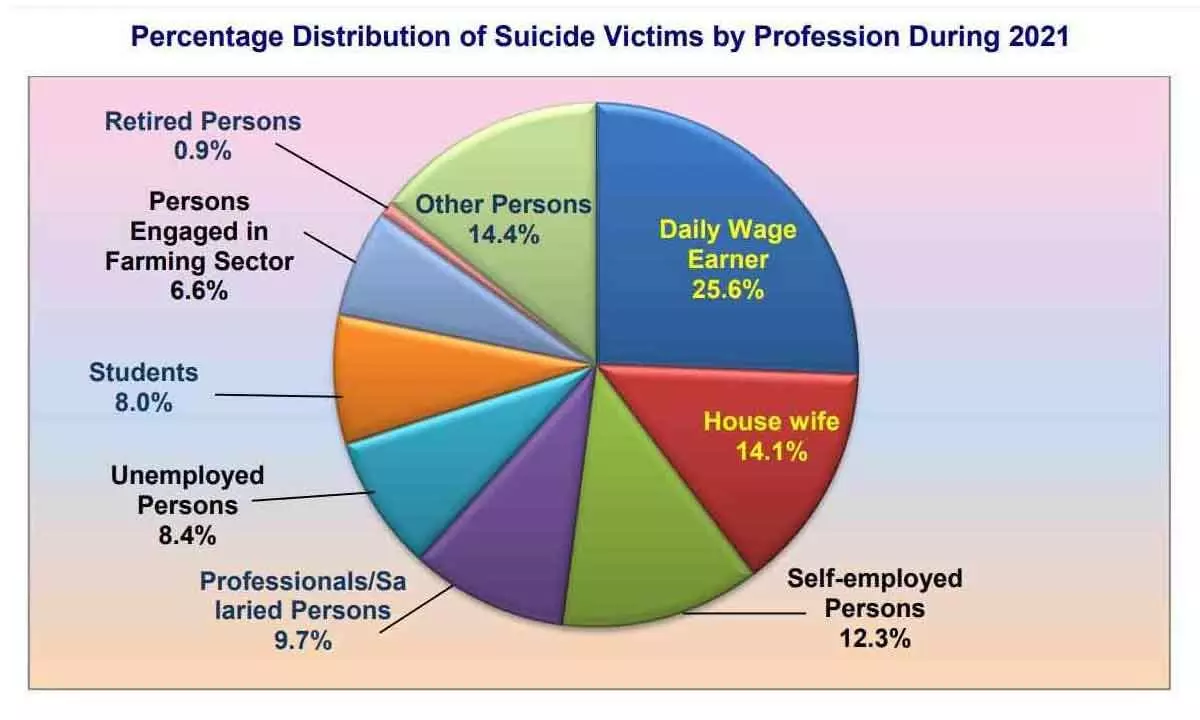
Image Source: thehansindia
The National Crime Records Bureau (NCRB) report has shed light on a concerning trend – the disproportionate prevalence of suicides among certain occupational groups, notably daily wage earners and farmers. This report, crucial from the socio-economic perspective, highlights the grim reality faced by these vulnerable sections of society.
Overview of the NCRB Report Findings
The NCRB report, compiled annually, serves as a comprehensive data repository on various aspects of crime and social indicators. According to the latest available data, the suicide rates among daily wage earners and farmers have been alarmingly high.
The report reveals that the occupational stressors and financial uncertainties faced by individuals engaged in daily wage labor and agricultural activities contribute significantly to their mental health challenges. Factors such as debt burden, crop failure, lack of access to resources, and unstable income sources have led to an increased vulnerability to mental health issues, often culminating in tragic suicides.
Implications for Society
The disproportionate suicides in these occupational groups underscore the urgent need for holistic measures to address socio-economic disparities and mental health concerns. It is crucial for policymakers to formulate targeted interventions and support mechanisms to alleviate the challenges faced by these vulnerable segments of society.
Furthermore, enhancing financial inclusion, providing access to mental health services, improving agricultural practices, and creating avenues for sustainable livelihoods are imperative steps towards mitigating the distress faced by daily wage earners and farmers.
UPSC Relevance and Significance
From the UPSC perspective, understanding these socio-economic issues and their ramifications is pivotal. Aspirants preparing for the civil services examination must grasp the multi-dimensional nature of challenges faced by different occupational groups and the underlying socio-economic factors contributing to such issues.
Moreover, candidates should delve into the policy measures and government initiatives aimed at addressing these challenges. A comprehensive understanding of these issues is essential to formulate effective policy solutions and contribute meaningfully to nation-building.
Conclusion
The NCRB report's revelations regarding disproportionate suicides among daily wage earners and farmers serve as a stark reminder of the pressing need for targeted interventions and policy reforms. Addressing the socio-economic vulnerabilities and mental health challenges faced by these occupational groups should be a priority for a more inclusive and equitable society.
Aspirants aiming for the civil services must comprehend the intricacies of these issues and advocate for sustainable and empathetic policies to ensure the well-being of all sections of society.